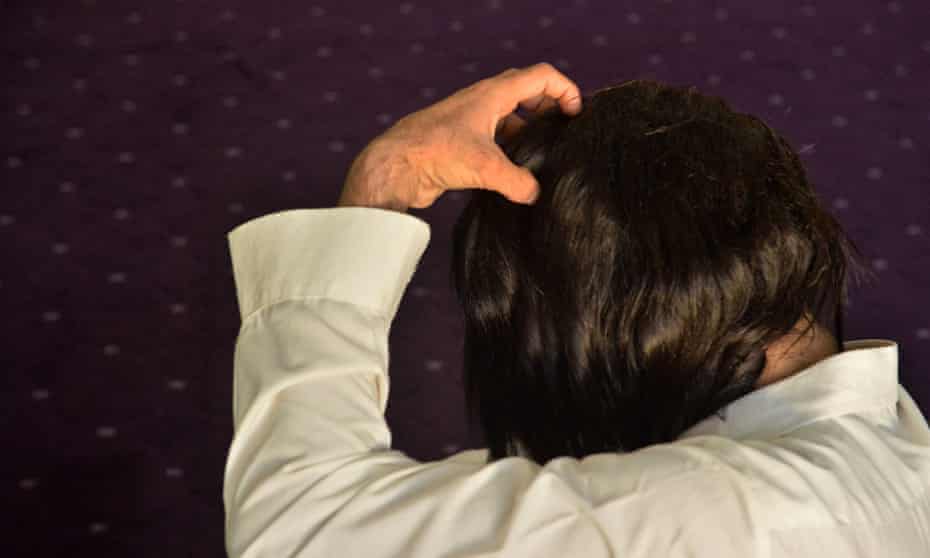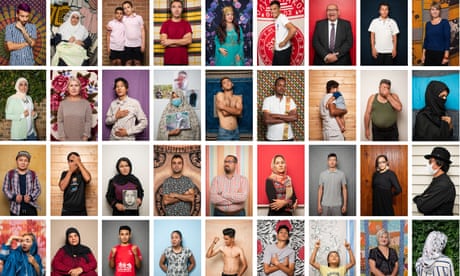Toronto charity helps airlift group of LGBTQ people out of Afghanistan
Rainbow Railroad worked with the U.K. to help 29 people
flee the Taliban
A Toronto-based charity has played a key role in helping a group of LGBTQ Afghans escape the Taliban after a months-long, cross-continental campaign to get them out of Kabul.
After receiving hundreds of requests for help from Afghans fearing for their safety, Rainbow Railroad, a group that helps LGBTQ people escape persecution, has worked with a British charity called Stonewall to help airlift members of the community to the U.K.
The first group of 29 people boarded a military flight Friday bound for an undisclosed location in the U.K., the British Foreign, Commonwealth and Development Office announced.
"Rainbow Railroad's hope is that they will be the first of hundreds more arriving in the U.K. through this scheme, and that other governments, notably the American and Canadian governments, will partner with us on similar operations," said Eric Wright, the Canadian charity's communications officer, in a news release on Friday.
After the group quarantines in a hotel, they will then be resettled in Britain.
Wright said some of the 29 are students and others are defenders of LGBTQ rights in Afghanistan, making them targets for the Taliban.
Homosexuality is criminalized under Afghan law, with offenders facing imprisonment or a maximum penalty of death. A 2020 report from the U.S. Department of State on human rights in Afghanistan found that LGBTQ people faced discrimination in employment and health-care, and they are also vulnerable to beatings and sexual assault by security forces.
'Living in fear for their lives'
The campaign involved "months of partnership development, and direct advocacy to the U.K. government at the highest levels", Wright said, including an urgent letter sent to U.K. Foreign Secretary Dominic Raab and Prime Minister Boris Johnson on Aug. 27, just days before the evacuation efforts from Kabul ended. The last U.S. plane left Hamid Karzai International Airport on Aug. 30.
The letter, jointly signed by Stonewall chief executive Nancy Kelley and Rainbow Railroad executive director Kimahli Powell, requested urgent help to airlift LGBTQ Afghans, who were "at extreme risk of torture and death at the hands of the Taliban and already living in fear for their lives."
The two charities complied a list of 200 people who were in easy distance of Kabul's airport, hoping to airlift "as many people on this list as possible" before the airlift efforts ended. However, the U.K. pulled out of Afghanistan the following day.
The list of people awaiting evacuation has grown since then, and while the spokesman couldn't give a specific figure, he said "hundreds" were still awaiting evacuation.
Rainbow Railroad says it has received more than 700 requests for help from LGBTQ people in Afghanistan since the Taliban took over. The group says that's more than a quarter of the number of requests for help that come in each year from all over the world. As a result, the group has hired extra staff specifically to triage Afghanistan cases.
Charity calls on Canada to step in
Only 29 people could be airlifted at one time because of the the operation and the extreme security risks that arise with the movement of people across borders, Wright said, as well as the Taliban actively pursuing LGBTQ people, their limited mobility due to fear of violence and the lack of help from other governments, other than the U.K.
Wright called on the Canadian government to step in to help so LGBTQ people could also be resettled in Canada.
"The former Minister of Immigration has been tweeting about this since the beginning, but we need more than this. We need Canadian moral and humanitarian leadership on this file."
As the final Canadian evacuation flight left Kabul on Aug. 26, former Minister of Immigration Marco Mendicino tweeted his intention to help grant safe passage to Afghan refugees, such as people from the LGBTQ community, to enter Canada.
"Our evacuation is ending, but our commitment to the people of Afghanistan is as strong as ever. In the next months, we'll welcome thousands of vulnerable Afghan refugees forced to flee to other countries — focusing on women, religious minorities, LGBTQ folks and others," Mendicino's tweet said.
In total, Canada airlifted more than 3,700 people from Afghanistan.
The initial group of 29 will now be supported by Stonewall and other LGBTQ charities to begin their new lives in the U.K.
More LGBTQ Afghans are expected to arrive in the U.K. in the coming months.
In a statement issued by the U.K. Foreign Office Friday, Rainbow Railroad executive director Kimahli Powell said: "This is just the beginning of our efforts to help hundreds of LGBTQI+ individuals we are supporting in Afghanistan relocate to safety."
Time running out for LGBTQ+ Afghans hidingLarge numbers linked to previous administration are stranded in Afghanistan, with calls for the UK to broker rapid mass evacuation

Mark Townsend
@townsendmark
Sun 31 Oct 2021
Calls for the government to speed up the evacuation of gay, lesbian and transgender Afghans intensified on Saturday after the first LGBTQ+ group arrived safely in Britain but left many behind to face an uncertain fate.
The group of 29 is “hoped to be the first of many” in the coming months, the Foreign Office said, hours after the Taliban announced LGBTQ+ rights would not be respected.
The move has left large numbers of LGBTQ+ individuals linked to the previous administration stranded in Afghanistan, with calls growing for the UK to broker a rapid mass evacuation from Kabul.
One of the 29, who did not wish to be named, told the BBC on Saturday that he felt “like a human being” for the first time in his life. “Everything collapsed after the fall of Kabul. I was very depressed. I was counting my days to die.”
He said Britain was now his home. “Everything is new to me here. A new lifestyle, a new language and culture. I am a bit nervous about my future, and I am trying to figure out where to start my new life, but man, I feel safe and free! This is amazing.”
Gianluca Di Caro, chief executive of the British and Irish Boxing Authority (Biba), said the organisation had 250 boxers and their families still trapped in Afghanistan, a significant proportion of them LGBTQ+.
Di Caro told the Observer: “We need to get them out quickly. We’ve already had female boxers who have been assaulted by the Taliban. In some cases Taliban have gone into some of the girls’ houses.”
Biba has been in contact with Home Office officials since the Taliban’s return to power on 15 August, but fears time is running out.
Previously, a Taliban judge said there were only two punishments for homosexuality – stoning or being crushed under a wall. During the Taliban’s last period in power there were reports of gay men being stoned to death in officially sanctioned executions.
The UK foreign secretary, Liz Truss, said in a statement on Saturday: “We played a key role getting these people out and will continue to do all we can to help at-risk Afghans leave the country.” She added Britain would defend “the right of all people to be themselves and love who they want”.
Among the group are activists who had stood up for LGBTQ+ rights in Afghanistan, Foreign Office officials said. The arrivals will stay in “bridging accommodation”, they added, although their legal status is unclear.
No details were given on how the group were able to leave Afghanistan, with officials stressing the need to safeguard the route. Yet the fact they were allowed to depart suggests a possible diplomatic agreement. Truss’s predecessor, Dominic Raab, previously stated the need to engage with the Taliban.

‘We have more in common than what separates us’: refugee stories, told by refugees
Officials said the foreign secretary, along with British LGBTQ+ group Stonewall and Canadian organisation Rainbow Railroad, had intervened to ensure the Afghan group gained safe passage to the UK.
Nancy Kelley, Stonewall’s chief executive, said her organisation had been campaigning to bring vulnerable Afghans to the UK for a few months. She vowed to continue to push for international support to help those still in the country.
“The situation is likely to remain extremely dangerous for some time,” Kelley said.
LGBTQ+ people have previously described hiding in small rooms and basements for weeks after the Taliban takeover. Others are being hidden by friends, who are helping to keep watch and bringing them food and supplies.
The UK has evacuated more than 8,000 Afghans who worked for the UK and their families, as well as many other highly vulnerable people, since the Taliban seized power.
The government said that the Afghan citizens’ resettlement scheme would remain open to provide protection for people at risk.




No comments:
Post a Comment